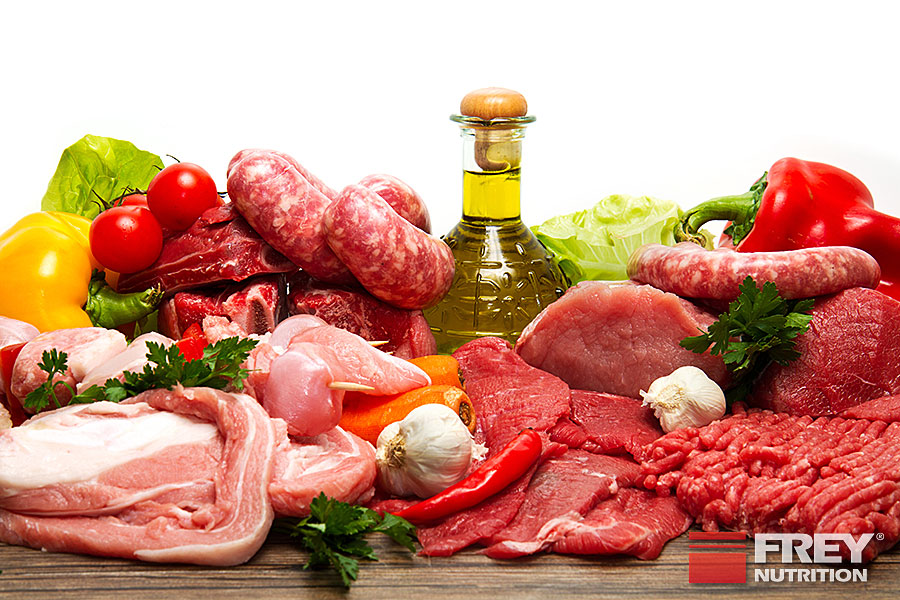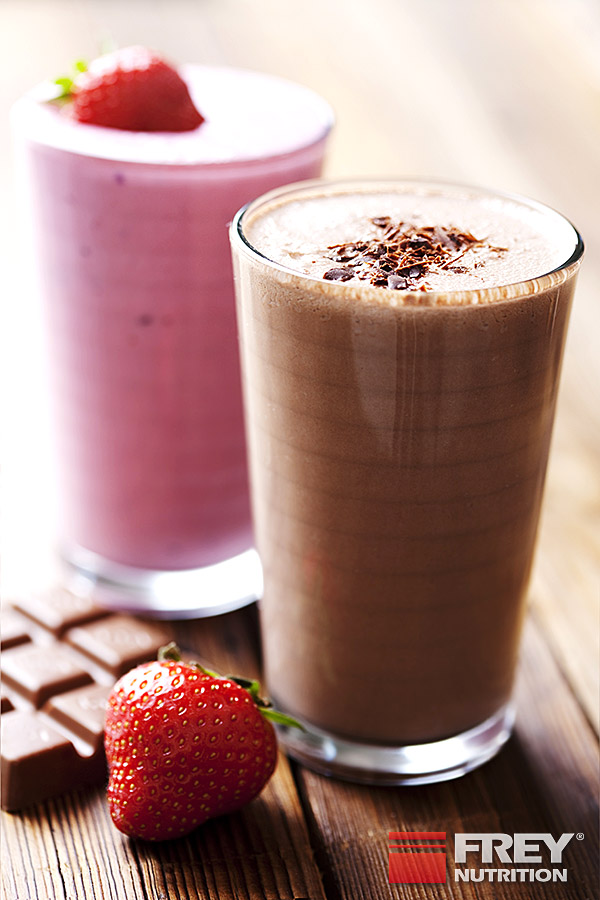ANSWER

However, I consider most sweeteners to be harmless as long as they are used in moderation. After all, most of them have been used for decades and have been tested in theory and practice.
Sweeteners are said to raise insulin levels, which is something that should be avoided, especially when dieting, but also during the build-up phase. By suggesting to the body that it is receiving something sweet, contrary to the actual situation, sweeteners are said to cause the pancreas to increase insulin secretion. I personally do not believe in this theory - not least because I have not noticed any increase in insulin or the associated cravings after eating foods that contain sweeteners.
Sweeteners are often used in pig fattening. Those opposed to sweeteners claim that they are used precisely to make the pigs hungry and thus force them to fatten. On the other hand, it could also simply be to make the feed for fattening more palatable.To ensure the good taste of protein powders, for example, manufacturers can hardly do without sweeteners.
A combination of two or even three sweeteners promises the greatest success: firstly, this creates a fairly natural-tasting sweetness. Secondly, potential side effects of the individual components can be avoided, as only a small amount of each is used.
This means that the so-called ADI value (Acceptable Daily Intake) is not exceeded - a factor that makes such protein products harmless in the light of the sweetener debate mentioned above.
In general, you should be aware that sweeteners are not natural. However, when used in moderation, they pose no danger. In my opinion, caution is only advised with aspartame due to some negative studies.
SOURCES / STUDIES:
Schernhammer ES et al., "Consumption of artificial sweetener- and sugar-containing soda and risk of lymphoma and leukemia in men and women." Am J Clin Nutr. 2012 Dec;96(6):1419-28. doi: 10.3945/ajcn.111.030833. | Soffritti M et al., "First experimental demonstration of the multipotential carcinogenic effects of aspartame administered in the feed to Sprague-Dawley rats." Environ Health Perspect. 2006 Mar;114(3):379-85. | Soffritti M et al., "Life-span exposure to low doses of aspartame beginning during prenatal life increases cancer effects in rats." Environ Health Perspect. 2007 Sep;115(9):1293-7. | Abhilash M et al., "Effect of long term intake of aspartame on antioxidant defense status in liver." Food Chem Toxicol. 2011 Jun;49(6):1203-7. Epub 2011 Mar 3. | Ciappuccini R et al., "Aspartame-induced fibromyalgia, an unusual but curable cause of chronic pain." Clin Exp Rheumatol. 2010 Nov-Dec;28(6 Suppl 63):S131-3. Epub 2010 Dec 22. (Aspartame-induced fibromyalgia, an unusual but curable cause of chronic pain) | Soffritti M et al., "Aspartame administered in feed, beginning prenatally through life span, induces cancers of the liver and lung in male Swiss mice." Am J Ind Med. 2010 Dec;53(12):1197-206. | Walton RG et al., "Adverse reactions to aspartame: double-blind challenge in patients from a vulnerable population." Biol Psychiatry. 1993 Jul 1-15;34(1-2):13-7. (Adverse effects of aspartame: double-blind challenge in patients with a vulnerable personality) | Van den Eeden SK et al., "Aspartame ingestion and headaches: a randomized crossover trial." Neurology. 1994 Oct;44(10):1787-93. (Aspartame consumption and headache: a randomized, cross-sectional trial) | Davis DL et al., "Aspartame and incidence of brain malignancies." Cancer Epidemiol Biomarkers Prev. 2008 May;17(5):1295-6. (Aspartame and the occurrence of malignant brain diseases | Szucs EF et al., "The effects of aspartame on mast cells and basophils." Food Chem Toxicol. 1986 Feb;24(2):171-4. (The effects of aspartame on mast cells and basophils) | Roberts HJ. "Aspartame disease: a possible cause for concomitant Graves` disease and pulmonary hypertension." Tex Heart Inst J. 2004;31(1):105; author reply 105-6. (Aspartame disease: a possible cause for concomitant Graves` disease and pulmonary hypertension)IS THE DGE’S PROTEIN RECOMMENDATION SUITABLE FOR BUILDING MUSCLE?
ANSWER
Only when a diet is imminent or for very advanced athletes can an increase to four grams make sense. Only ambitious competitive athletes need even more protein in the toughest pre-competition phase. This refers to the last four weeks before the competition, when the diet is particularly low in carbohydrates and proteins are primarily used to protect the muscles.
But it is not just the amount of protein that is important, but also the quality of the protein. Animal proteins are generally of higher quality than plant proteins. Beef, poultry, eggs, milk and cottage cheese should therefore be used as preferred sources to cover your needs. The use of protein powders is particularly useful if you are on the go a lot or have little time to prepare meals - and of course immediately after training as post-workout nutrition. Here too, animal proteins should be preferred. I cannot recommend protein products that only contain wheat, rice or even pea protein, as they have a low biological value and are therefore not particularly suitable for building muscle.In addition to the quantity and quality of the individual proteins, the biological value of a mixture is also important. An optimal mix of proteins achieves a much higher biological value than the individual proteins have on their own. For this reason, protein powders with multiple components are preferable to single-component proteins. In this context, I recommend mixtures of casein, whey and egg.
For more information about proteins, see the article MACRONUTRIENT: PROTEIN . If you are interested in protein supplements and their advantages and disadvantages, I can recommend the article about THE DIFFERENT TYPES OF PROTEINS highly recommend.












